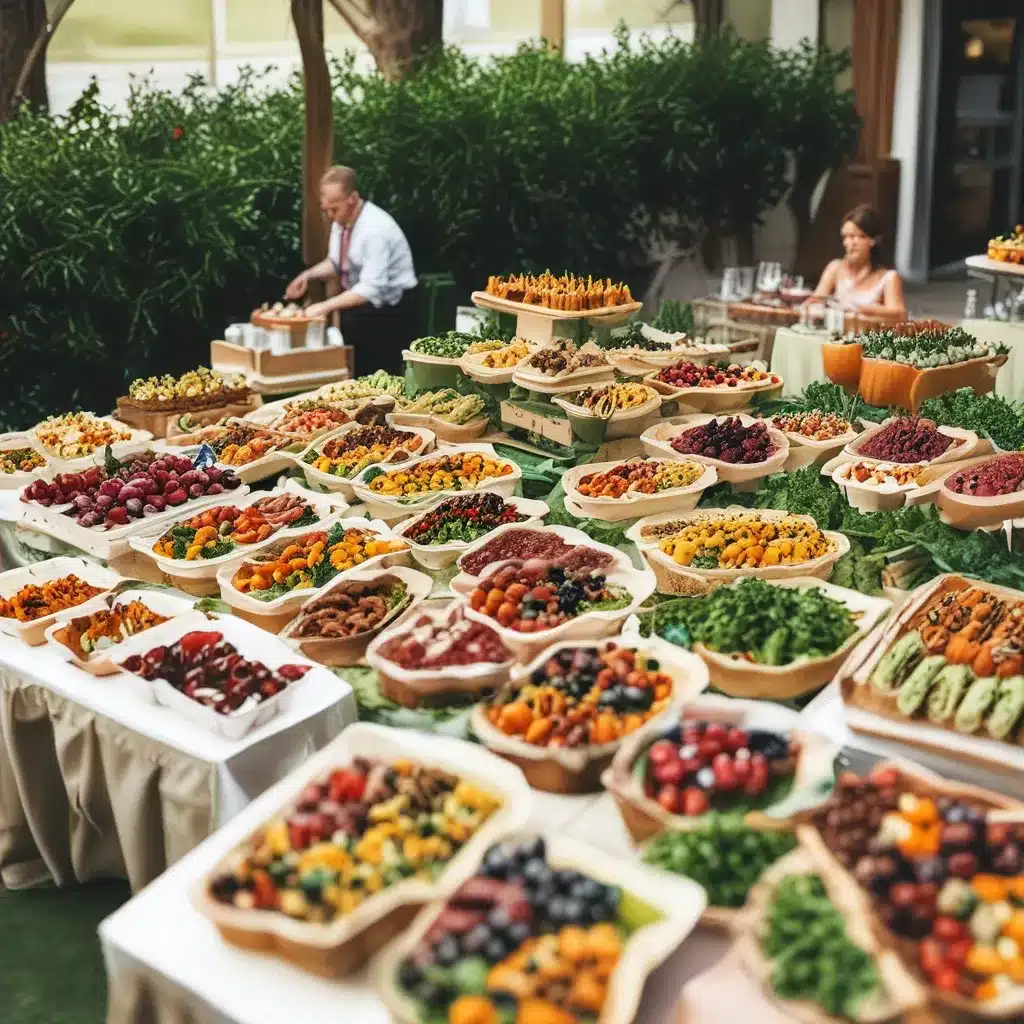
Moroccan Cuisine’s Eco-Friendly Transformation
As a lover of all things Moroccan, I’ve always been fascinated by the rich culinary traditions of this enchanting North African country. From the fragrant spices and vibrant flavors to the intricate cultural rituals surrounding food, Moroccan cuisine has captivated my palate and imagination. But in recent years, I’ve been particularly intrigued by the growing movement towards sustainable and eco-friendly catering practices within the Moroccan food scene – and nowhere is this more evident than at El Bahia, a Moroccan restaurant in the heart of New York City.
Embracing Sustainable Sourcing
When I first stepped into El Bahia, I was immediately struck by the restaurant’s commitment to sustainable sourcing. As I perused the menu, I noticed that each dish highlighted the local, organic, and often biodynamic producers that supplied the ingredients. “We believe that the quality of our food starts with the quality of our ingredients,” explained the owner, Fatima, as she guided me through the various offerings. “That’s why we’ve developed strong relationships with farmers and purveyors who share our vision for environmentally responsible agriculture.”
One particular partnership that caught my eye was with a small-scale olive oil producer in the High Atlas Mountains. “Their olive oil is not only delicious, but it’s also certified organic and Fair Trade,” Fatima shared enthusiastically. “We use it in everything from our salad dressings to our tagine marinades, and it really makes a difference in the depth of flavor.”
Reducing Waste and Emissions
As I dove deeper into the restaurant’s sustainability initiatives, I was equally impressed by their efforts to minimize waste and reduce their carbon footprint. “We’ve implemented a comprehensive composting program that diverts the majority of our food scraps from the landfill,” Fatima told me. “And we work with local recyclers to ensure that everything from our glass bottles to our cardboard boxes is properly processed and repurposed.”
But the real showstopper, in my opinion, was their commitment to renewable energy. “Last year, we installed a state-of-the-art solar array on our rooftop that now generates a significant portion of our electricity needs,” Fatima beamed. “It’s been a game-changer, not only for our environmental impact but also for our bottom line.”
Embracing the Plant-Based Movement
One of the most striking aspects of El Bahia’s sustainability efforts, however, was their embrace of the plant-based movement. “We’ve found that our customers are increasingly interested in vegetarian and vegan options,” Fatima explained, “so we’ve worked hard to expand our menu to cater to those preferences.”
The restaurant’s signature vegetable tagine, for instance, is a showstopper, featuring a mouthwatering blend of slow-cooked vegetables, fragrant spices, and a rich, velvety sauce. “We use locally sourced, seasonal produce whenever possible, and we’re always experimenting with new flavor combinations,” Fatima shared. “Our goal is to prove that sustainable, plant-based cuisine can be just as delicious and satisfying as traditional meat-based dishes.”
Cultivating a Conscious Community
But beyond the impressive sustainability initiatives, what truly sets El Bahia apart is its deep sense of community engagement. “We see our restaurant as a hub for like-minded individuals who are passionate about food, culture, and the environment,” Fatima told me. “That’s why we host regular workshops and events that explore the intersection of Moroccan cuisine and sustainable living.”
One such event that caught my eye was a “Farm-to-Table Cooking Class,” where guests had the opportunity to visit a local organic farm, harvest fresh produce, and then return to the restaurant to learn how to incorporate those ingredients into traditional Moroccan dishes. “It’s all about connecting people to the source of their food and empowering them to make more conscious choices,” Fatima explained.
The Future of Green Catering
As I reflect on my experience at El Bahia, I can’t help but feel inspired by the restaurant’s holistic approach to sustainability. From sourcing high-quality, eco-friendly ingredients to minimizing waste and investing in renewable energy, the team at El Bahia has truly set the bar for what it means to be a green-minded catering establishment.
But the most impressive aspect, in my opinion, is their ability to seamlessly integrate these sustainability initiatives into the overall dining experience. “We don’t want our customers to feel like they’re being lectured or preached to,” Fatima shared. “Our goal is to simply showcase the deliciousness and versatility of Moroccan cuisine, while also highlighting the important role that sustainable practices can play in creating a healthier, more harmonious food system.”
As the demand for eco-friendly catering continues to grow, I have no doubt that establishments like El Bahia will serve as shining examples of what’s possible. By embracing a holistic approach to sustainability, they’re not only reducing their environmental impact but also cultivating a community of conscious consumers who are eager to explore the intersection of culinary tradition and environmental stewardship.
So, the next time you’re in the mood for an unforgettable Moroccan feast, I highly recommend paying a visit to El Bahia. Not only will you be treated to a culinary adventure of the senses, but you’ll also be supporting a restaurant that is truly leading the way towards a more sustainable future.


